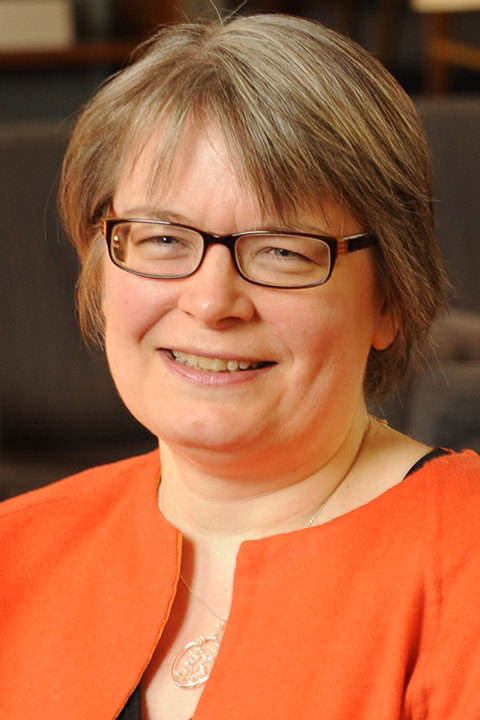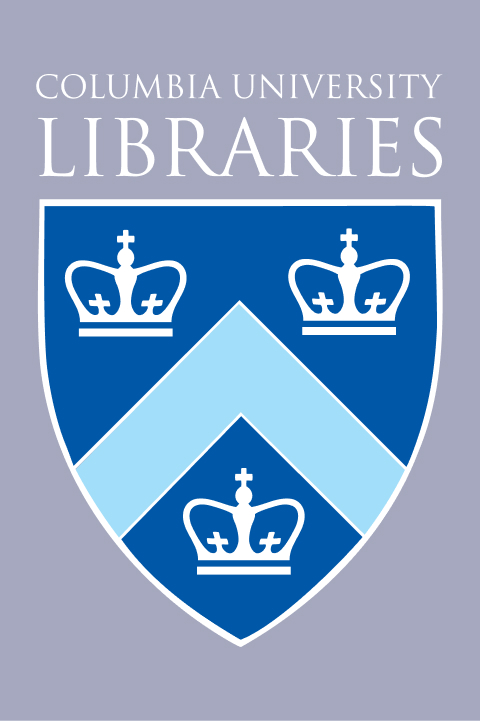Italian Language & Literature
Columbia University Libraries supports research in both the historical and literary aspects of Italian language and literature, including the teaching of basic and advanced language skills, the history of the Italian language, Romance philology, and the detailed study of the spectrum of Italophone literature from medieval vernacular poetry to 21st-century fiction. Collection suggestions from students, faculty, and researchers are welcome.
Columbia has been collecting Italian-language materials since the early 19th century, beginning with Columbia College’s purchase of approximately 300 books between 1826 and 1829 from Lorenzo Da Ponte, Columbia’s first Professor of Italian (and Mozart’s librettist). In 1838, the Trustees purchased President Nathaniel Moore’s personal library, which was rich in classics, philosophy, and Italian literature, enhancing the core collection begun with Da Ponte’s books. In the 20th century, one of the Casa Italiana’s founders and most generous benefactors, Charles V. Paterno, gifted Columbia with over 16,000 volumes, including a special collection of works on Italian literature and history from the Risorgimento period. In 1937, Charles V. Paterno further supported Columbia’s libraries by establishing an endowment of $30,000 in his name, the income of which is devoted in perpetuity to the purchase of new books published in and about Italy.
As the study of Italian language and literature at Columbia has evolved over the course of the last half-century, so too have the Libraries’ collections. The current collecting scope is much broader than works by or about the tre corone (Dante, Petrarch, and Boccaccio). Strengths now include women writers, particularly in the 19th and 20th centuries; immigrant voices in contemporary literature; postcolonial literature and literary theory; film, television, and cultural studies; and fumetti, including the entire run of Tex comic strips. Treasures in the Rare Book & Manuscript Library are broadly accessible through the Digital Scriptorium, showcasing 331 medieval and Renaissance manuscripts originating in Italy, and on Digital Dante, a collaboration between Columbia University Libraries and the Department of Italian that features several early printed editions of The Divine Comedy published in the 15th and 16th centuries. Relevant materials in religious history and theology are located at the Burke Library at Union Theological Seminary; works of art history and architecture are at Avery Architectural & Fine Arts Library; the social sciences are housed in Lehman Social Sciences Library; and music materials may be found at the Gabe M. Wiener Music & Arts Library.
This document outlines the Libraries’ general policy on collections for Italian language and literature, but it is not intended to be a rigid set of rules; collection suggestions from students and faculty are welcome. (See contact information below.)
a. Undergraduate
Department of Italian majors and minors; Columbia College (CC), School of Engineering and Applied Science (SEAS), and General Studies (GS) students enrolled in literature humanities and/or contemporary civilization courses; students majoring or concentrating in comparative literature and society.
b. Graduate & Professional Schools
Department of Italian MA and PhD students; MA students in the modern European studies program; PhD students affiliated with the Institute for Comparative Literature and Society; MA and PhD students in the Department of History.
c. Institutes, Interdisciplinary Programs, etc.
Italian Academy for Advanced Studies in America; Institute for Comparative Literature and Society; Heyman Center for the Humanities; European Institute.
d. Course Reserves
Selection for course reserves is up to individual faculty members. The Librarian will do whatever is possible to secure specific materials absent from the collection.
a. Print
Standard (and non-standard) editions of all literary classics are sought in Italian and, when available, in English, for the Butler Library stacks. Critical materials are for the most part collected either in Italian or English, although other major European languages are also included if no translation into either Italian or English is available. Contemporary works of fiction, poetry, and drama are collected in Italian and frequently also in English. In-depth coverage of the Italian language—its history, grammar, lexicography, and philology—is maintained, mostly at the Libraries’ shared off-site storage facility (ReCAP). Anthologies of Italian or Italophone literature are usually located in the Comparative Literature & Society Reading Room (615 Butler Library).
b. Digital Collections
Columbia University Libraries offers an extensive variety of electronic resources. In Italian, we strive to offer the full array of commercially available databases including Torrossa, AIDA, Bibliografia generale della lingua e della letteratura italiana (BiGLi), Early European Books Online, ITER: Gateway to the Middle Ages and the Renaissance, and Opera del Vocabolario italiano via ARTFL, all of which provide researchers with access to thousands of e-books and hundreds of e-journal subscriptions. These electronic resources complement the print collections and substantially enhance the range of Italian-language content available to researchers at Columbia. Datasets and websites are not currently collected but suggestions from researchers are welcomed.
c. Media
Nearly 2,000 Italian videos, primarily feature films and documentaries on DVD and VHS, are available in the Butler Media Collection. The Librarian for Butler Media, Film Studies & Performing Arts is primarily responsible for collecting Italian materials in these areas. The Music & Arts Library maintains impressive collections of audio recordings, sheet music, and scholarship on music in Italy, including the history of opera and Italian composers.
d. Languages Collected
The primary languages of collection are Italian and English, with materials in French and German occasionally acquired. Italian dialects are not collected except when absolutely necessary for research and teaching needs.
e. Chronological Focus
Late Middle Ages (vernacular literature only) to the present day.
f. Geographical Focus
The Italian peninsula, including Sicily and Sardinia, is the primary focus. Other parts of the Italian-speaking world are collected selectively, mostly Switzerland, Malta, Argentina, Croatia, Albania, and Slovenia.
g. Imprint Dates Collected
The main focus of collecting is current and recent (+/- three years) imprints. When antiquarian acquisitions are offered via gift or purchase, no specific chronological ranges are established in advance; rare or unique materials from any period may be considered.
Columbia’s distinctive and special collections in Italian language and literature are remarkably rich and varied. In the Butler Library stacks, one can find the aforementioned Paterno collection, one of the most extensive circulating collections of books published in and about Italy in North America, including gifts from former professors of Italian at Columbia like the influential journalist and literary critic Giuseppe Prezzolini. In the Rare Book & Manuscript Library, highlights include Letters of Italian Patriots, 1754--1874, a collection of letters, documents, and portraits relating to six distinguished Italian patriots (including Giuseppe Garibaldi and Count Cavour) who were prominent in the unification of Italy in the 19th century; the Luciano Rebay Collection of Giuseppe Ungaretti, 1964--1970, featuring reel-to-reel tapes and cassettes of lectures given at Columbia and the University of Oklahoma by Ungaretti, one of Italy’s foremost 20th-century poets, as well as photographs, typescripts, and books; and the Arthur Livingston Venetian Papers, containing 140 literary and political papers and documents relating to Venice and Venetian families from the 15th through 18th centuries. The Alexander M. Goren Collection is a recent extraordinary gift of the entire catalog (nearly 450 titles) of Tallone Editore, one of Italy’s oldest and most venerated fine printing publishing houses, specializing in classical and contemporary literature. The papers of former professors at Columbia can also be found in the Rare Book & Manuscript Library, including the 172 boxes that comprise the Paul Oskar Kristeller Papers, 1910--1989, a long-serving Columbia professor who is still considered the world’s foremost authority on the intellectual history of the Renaissance. More information on the robust medieval and Renaissance manuscript holdings in the Rare Book & Manuscript Library, including the current collecting scope and priorities, can be found here.
a. Consortia and Collaborative Collecting with Other Institutions
The range of print materials focusing on Italian language and literature is greatly enhanced by Columbia’s participation in Borrow Direct, OCLC’s SHARES network of international academic libraries, and the Manhattan Research Library Initiative (MaRLI), a partnership with New York University and The New York Public Library. MaRLI also enables Columbia to expand its electronic access to Italian-language e-journals and e-books through cooperative subscription and purchase agreements with Casalini Libri, a major Italian vendor.
b. Location Decisions and Selection for ReCAP
Editions of classical Italian literature, secondary criticism of Italian literature from all epochs, works by and about women authors, and works focusing on cultural and postcolonial studies remain on site in the Butler stacks. Canonical works of critical theory and anthologies of Italian/Italophone literature can be found in the Comparative Literature & Society Reading Room (615 Butler Library). Contemporary Italian fiction and poetry is sent directly to ReCAP, except for English translations, works by prize-winning authors, and works highlighting immigrant voices or underrepresented groups.
Duplication of titles is limited to works identified by faculty as being central to a specific course. In these cases, no more than a few copies are obtained, one of which should be placed by the faculty member on reserve.
Deduplication only takes place when a title has been identified for relocation to ReCAP and a copy already exists on shelf at that facility. Even in this instance, the Librarian will inspect the copy that could potentially be withdrawn for any unique features/unusual provenance before assenting to deduplication.
c. Deaccessioning
Titles are generally deaccessioned only in cases where the physical copy is disintegrating and no longer serviceable in print/physical format. In these instances, the Librarian will evaluate whether to make a preservation photocopy, to create or acquire a digital surrogate, and/or whether to replace the physical copy with another. Resources on obsolete formats are reviewed by librarians on a case-by-case basis; in instances where the original format has artifactual value, it will be retained even after it has been digitized or otherwise reformatted. Distinctive collections held in RBML, Starr, Avery, and Burke are not deaccessioned.
d. Digitization & Preservation
Many of Columbia’s most precious medieval and Renaissance manuscripts have been digitized and are publicly available in Digital Scriptorium. Early printed editions of Dante’s Divine Comedy have also been digitized for Digital Dante. As needed, titles in the Rare Book & Manuscript Library and in the circulating collections are evaluated by staff of the Libraries’ Preservation & Digital Conversion Division (PDCD).

Jane Siegel
Rare Book Librarian
- Rare Book & Manuscript Library

Western European Studies Librarian (Vacant)
Western European Studies Librarian (Vacant)
- Humanities & History
Last updated: November 2018